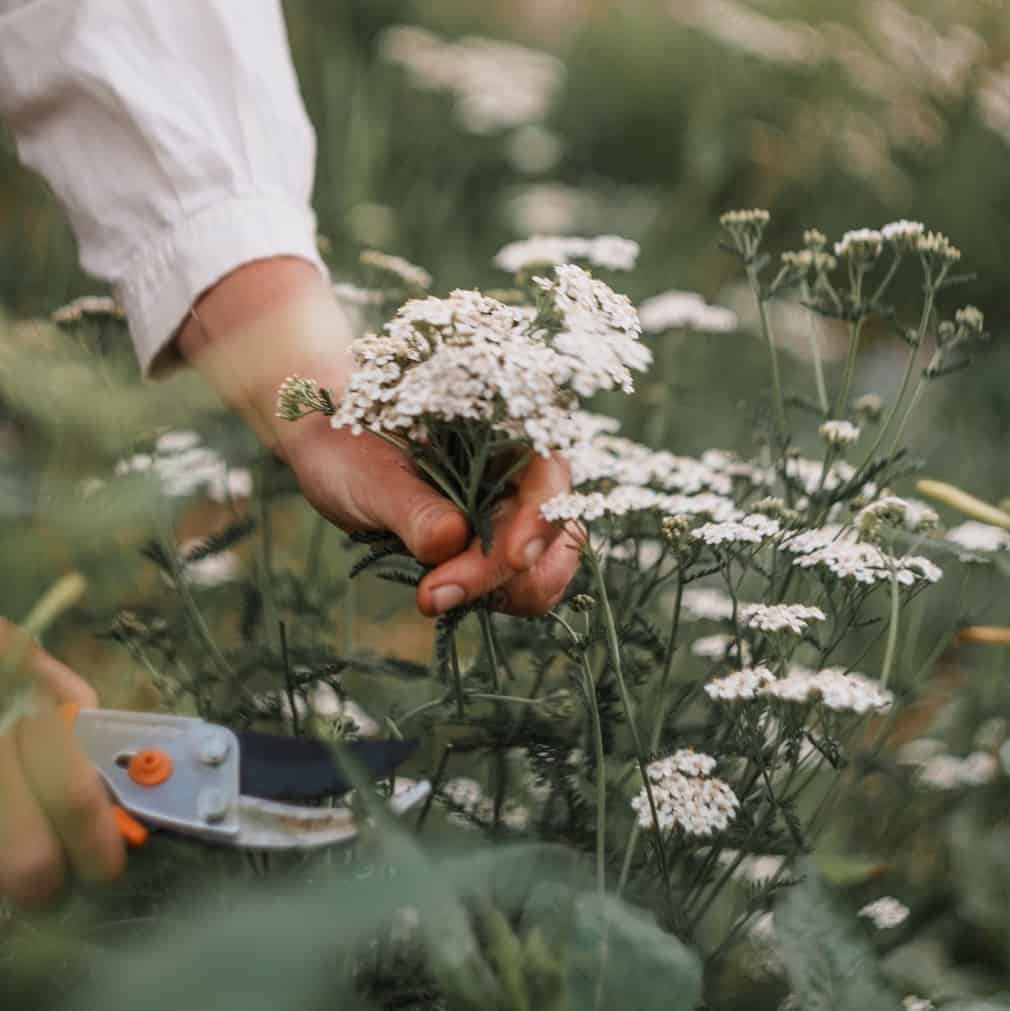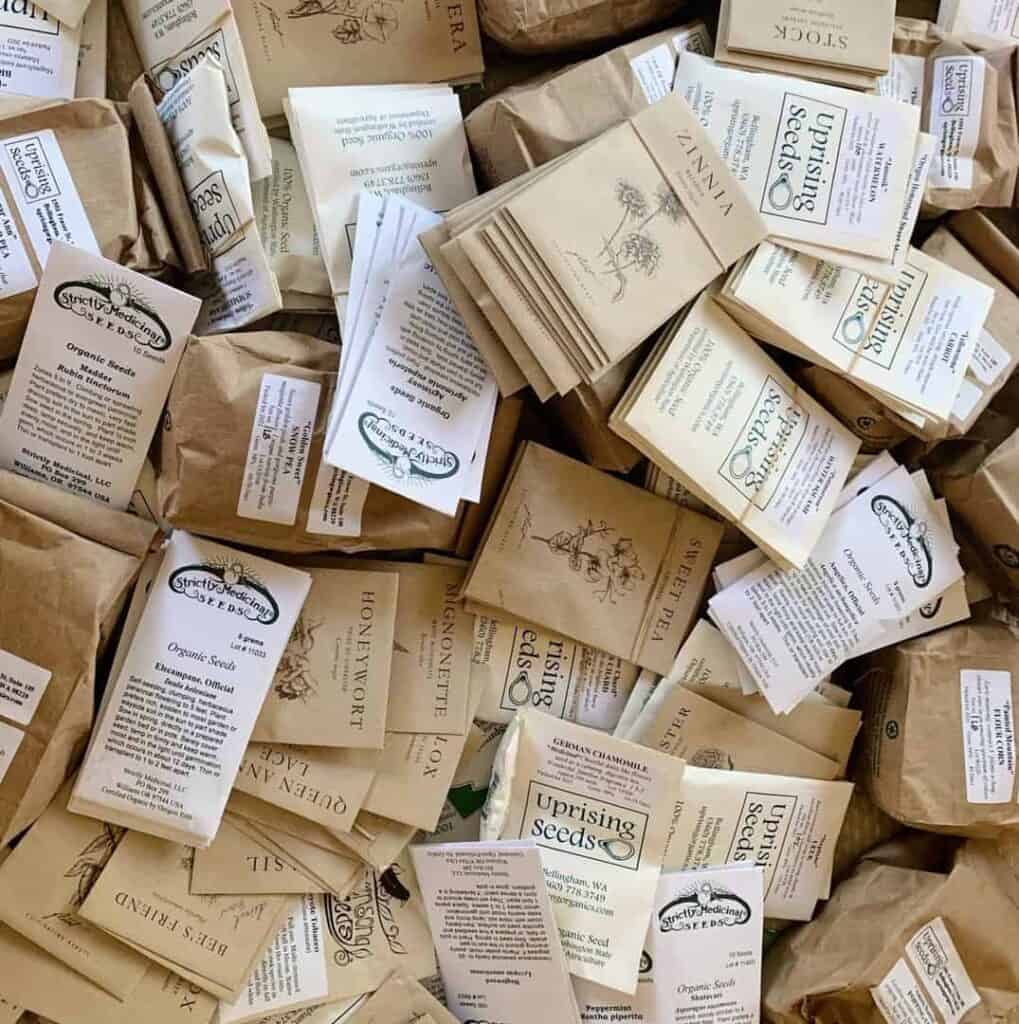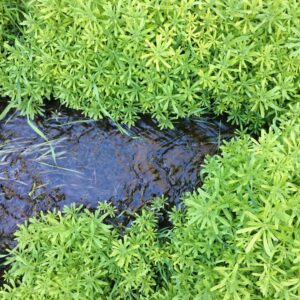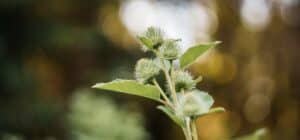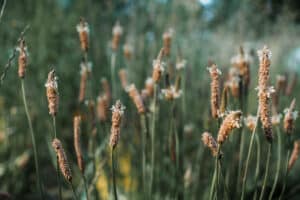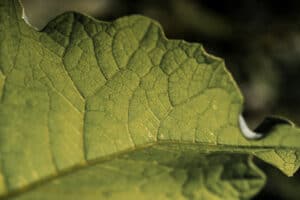With the holiday season approaching, you might be wondering what kinds of gifts an herbalist would like. Whether you’re unfamiliar with the field or have been practicing for years, we’ve compiled a helpful list of items you can use as a guide for finding the perfect gift for the lucky herbalist in your life.
In today’s blog post, we share our top recommendations for:
- Medicine making essentials to help you get started with a home apothecary
- Wildcrafting tools that make harvesting and cultivation work a breeze
- Processing tools to help you produce potent herbal medicine
- Some of our favorite resources for ordering quality bulk herbs and seeds
- A series of must-read books for the herbal enthusiast
Table of Contents
With the holidays around the corner, many herbalists are dropping subtle, or not so subtle, hints about what they’d love to receive as gifts.
If you’re unfamiliar with herbalism, you might be wondering where to start and what tools an herbalist needs most for setting up a home apothecary. Whether you’re looking to treat yourself this season or surprise someone special in your life, we’ve got you covered with this ultimate gift guide.
From wildcrafting gear to medicine-making equipment and must-read books, we’ve compiled a list of the items we use personally and love most. You can use it to decide what items are worth buying and will make for the perfect gift.
Medicine-Making Equipment
There’s something particularly exciting about applying what you’ve learned in herbalism to make your own herbal medicine. Whether you stock up on humble basics or invest in complex equipment, the items below will get you started with your home apothecary.
- Notebooks: The first step in making medicine is having notebooks to record your process. Use these to include important information, such as the formula and percentages you’re using, the date, astrological placements, and any other details you want to remember.
- Jars: If this sounds too humble a gift to give an herbalist, try presenting them with a box of mason jars and watch their eyes light up. Mason jars are one of the most essential tools an herbalist can have. I suggest buying an assortment of different sizes. A quart jar is good for small projects, half-gallon for larger quantities, and a gallon jar for ambitious ordeals. These jars are perfect for preparing a myriad of herbal medicines, such as honeys, syrups, oils, tinctures, infusions, and more. Plus, you can store dried herbs in there to keep them fresh as well.
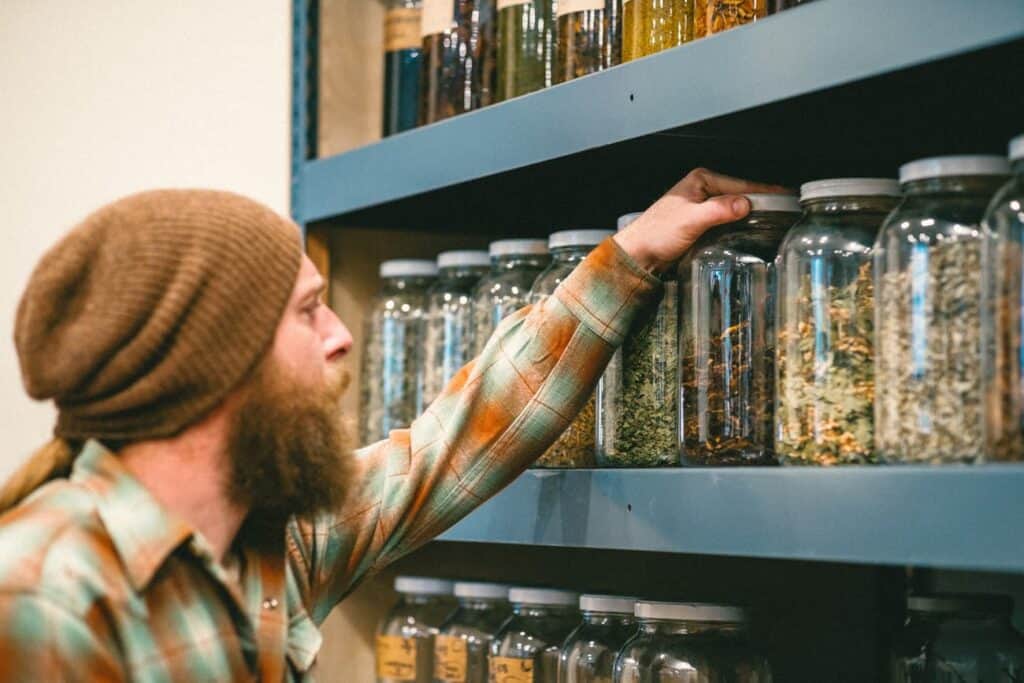
- Amber Bottles: The best way to keep your herbal solutions fresh is by storing them in glass amber bottles, which protect their contents from sun exposure and oxidation. Stock up on different size bottles and droppers, such as one-ounce and two-ounce bottles, as well as salve jars. Specialty bottles offer a large variety of options to choose from.
- Bottlebrush: These are useful for cleaning out bottles with small, narrow necks.
- Labels: The last thing you want is to make a tincture, store it, and find it weeks later with zero recollection of what it is. Prevent this by labeling everything you make. If you’re feeling fancy, use a label maker for a more polished look. Onlinelabels.com has some cool kraft paper labels that have a bit more of an Earthy look than a blah white label.
- Menstruums: A menstruum is a carrier that you use to produce herbal medicine. Although certainly not exhaustive, some common menstruums to stock up on include:
- Alcohol: Use a good quality 95% alcohol made from organic cane or grain alcohol. Using a high percentage of alcohol is advantageous as it allows you to dilute it as needed when preparing different herbal formulas that require different alcohol strengths. For easy purchase, you can open an account with the Organic Alcohol Company out of Ashland, Oregon, which produces excellent organic alcohol.
- Olive Oil: Wonderful as a carrier oil in salves and medicinal oils, cold-pressed olive oil makes a versatile menstruum for many products. Sunflower, coconut, and castor oil are other options to explore, each containing a different viscosity and feel.
- Beeswax: Used when producing luxurious salves, creams, and lotions, beeswax is wonderful to have on hand (no pun intended).
- Carnauba wax: A wax produced from the leaves of the carnauba palm, this makes a great vegan alternative for those who don’t use beeswax. Be sure to use sustainably sourced when looking for this.
- Apple cider vinegar: A large container of apple cider vinegar “with the mother” can be used to prepare delicious vinegar extracts.
- Honey: Using good-quality and unpasteurized raw honey, you can prepare herbal-infused syrups and honeys, which can be used alone or in combination with your vinegar extract to produce tangy oxymels.
- Glycerin: A fantastic alternative to alcohol, glycerine can be used to produce glycerite tinctures that yield a sweet flavor, making them compatible for children and for those who do not consume alcohol.
- Glass Cylinders or Beakers: Although you can technically use kitchen measuring cups, these tools offer precise measurements when measuring menstruums.
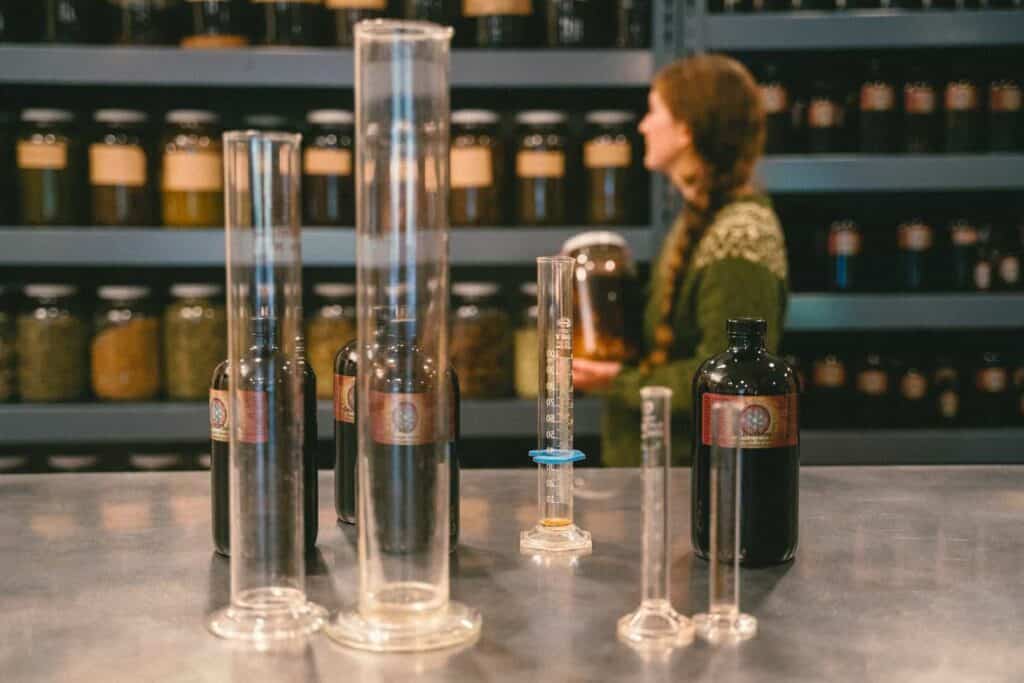
- Funnels: These are handy for pouring your freshly pressed tinctures into bottles and preventing spillage.
- Tincture press: If you’re serious about regularly making tinctures at home, you’ll want to ensure you squeeze out every drop. With a good quality tincture press, you can do just that. Available for purchase from Strictly Medicinals and Press Herbs (formerly known as the Longevity Herb Company), they are available in different sizes ranging from small to large.
- Distiller: If you’re looking to advance your practice of medicine-making, a small distiller can be a great tool. You can use this to distill alcohol, water, oil, and in conjunction with your spagyric work. Often on the pricier side, close to $300, it’s an investment towards your home apothecary. Gary Stadler at Heart Magic sells good ones for affordable prices.
- Banne de Marie: This traditional double boiler by Mauviel is fantastic for making herbal oils at home.
- A Beginner’s Medicine Making Kit: If this list has you feeling overwhelmed, this kit is for you. This includes most of the materials you need to prepare some basic remedies at home. Consider it a great starting point for your herbal journey ahead.
While I know some of these items don’t exactly seem like the most exciting gifts in the world (“Oh a new funnel?!?….. thaaaaaaanks”), you can make it a bit more exciting by presenting them in a festive medicine-maker’s basket.
Wildcrafting Tools:
Whether you’re harvesting your herbs or purchasing fresh ones in bulk, you’ll need equipment to process them until they’re ready to be used. The following are indispensable tools to have in your belt.
- Clippers: Any sturdy pair of clippers will do, but ergonomically designed ones are ideal as they can help prevent blisters from forming. We like to use Felco’s.
- Loppers: Used for pruning twigs and small branches, these can be used when working with trees or shrubs.
- Baskets: Harvest bags, Garden tool belt and apple-picking bags: Strap these over your shoulders and you’ve got a big bag in front of you, which makes wildcrafting a breeze.
- Hori Hori knife: A Japanese gardening knife made out of solid steel, Hori Hori knives are used to remove weeds and roots from the ground.
- Harvesting knife: Available in small or medium sizes, these sharp knives help you to efficiently harvest plants, peel barks, and… well a good knife is just a must-have! I personally really like anything from Cold Steel.
- Cobrahead Weeder/Cultivator: Designed to fit comfortably in your hand, this tool breaks tough soil and pulls out reluctant weeds.
- Digging Rod: Okay this is where a lot of people usually use shovels, but when it comes to digging roots, the problem with a shovel is that they often aren’t that great at breaking up really dense soil, and oftentimes end up cutting your roots. A good digging rod will loosen up the soil and prevent you from damaging those precious root medicines.
Processing tools:
Once you finish cultivating, you’ll need to process your plants further before using in herbal preparations. With the tools below, you’ll have every step covered.
- Mortar and pestle: A traditional tool nearly synonymous with the image of a home apothecary, this is useful for manually grinding dry herbs to a powder.
- Cuisinart or food processor: These are helpful for breaking down light plant parts, such as leaves and flowers, into smaller pieces.
- Hammermill: Pricier than the standard food processor, the hammermill breaks down denser and tougher plant matter. If this is too expensive, a flour mill is often more affordable.
- Vitamix: By adding your menstruum and herbs into this high-power blender, you can drastically reduce its size and increase the plant’s surface area, yielding potent tinctures.
- Coffee grinder: This is excellent for mechanically grinding small amounts of dried berries, roots, and other tough plant parts into a fine powder.
- Dehydrator: With this tool, you can efficiently dry large amounts of herbs so they don’t mold.
- Stainless steel bowls: Easy to clean and disinfect, these bowls are a simple tool that can enhance your medicine-making process.
- Cheesecloth, cotton pillowcases, or nut-milk bags: Use these to strain and squeeze every last drop out of your oils, cold infusions, and tinctures. These are especially helpful when straining mucilaginous herbs, such as marshmallow root.
- Strainers: These are a must-have for straining oils, tinctures, and infusions that are too hot to touch using a cheesecloth.
- Kitchen scale: Although you can use kitchen measuring tools to ascertain the volume of an herb, the only accurate way to measure its weight is with a scale. This is an indispensable tool to use when tincture making if you’re following a precise formula you’d want to recreate in the future. For larger amounts, sometimes a shipping scale is better so you have more surface area to place your herbs on.
Herbs and Seeds:
The most obvious gift of them all: Plants!
Presenting a gift certificate to a local herbal apothecary is a wonderful way to support an herbalist, and allows them to choose the herbs they’re most excited to use.
For bulk herbs, a few companies I trust and recommend are:
And specifically for seeds, I’d recommend:
For those particularly interested in mycology, an at-home mushroom starter kit is a fun way to develop a deeper relationship with the fungi-world.
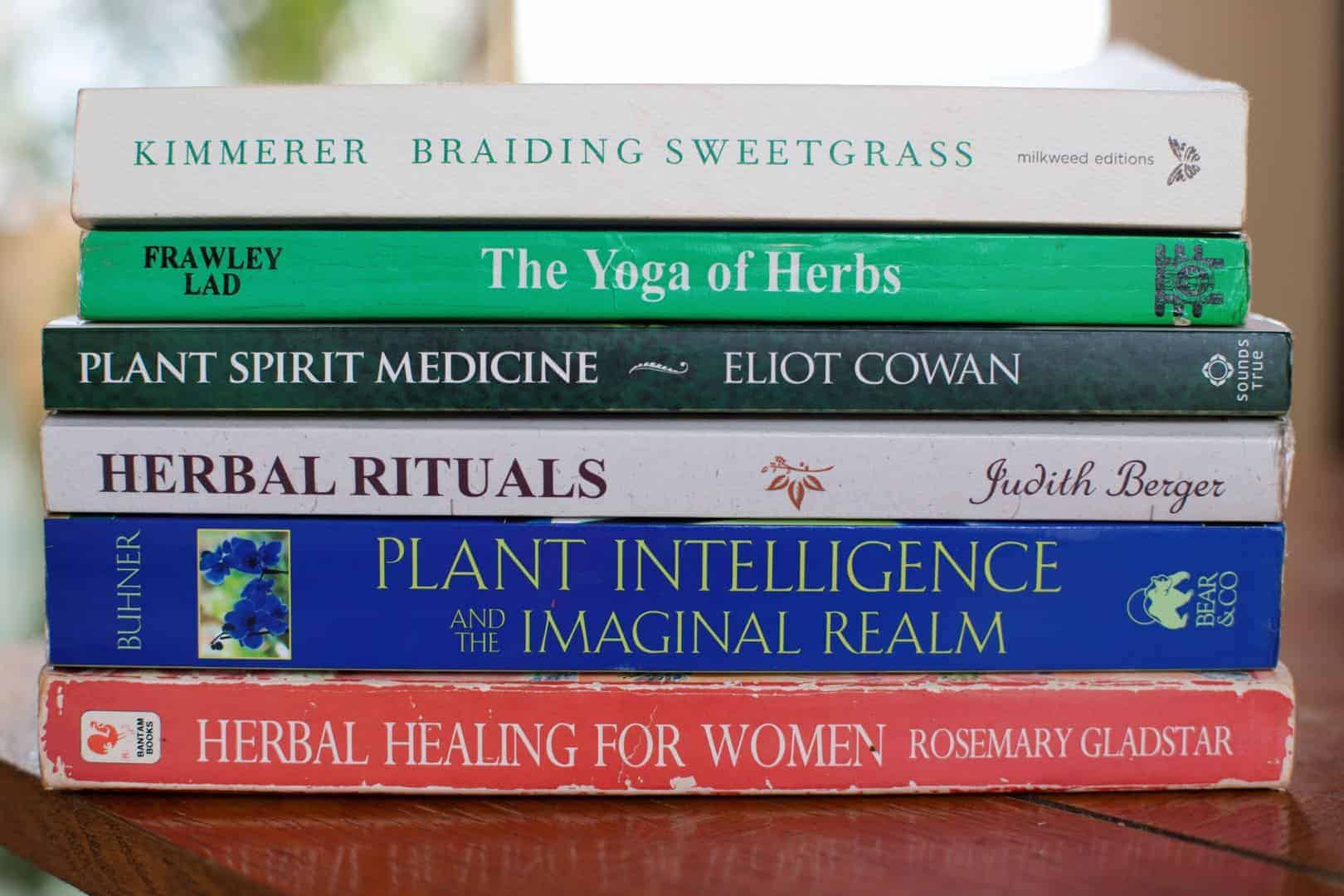
Books
Medicine-making can feel intimidating at times. After all, each herb has a preference for different ratios and percentages of alcohol. With the help of these books, you can reference easy-to-follow charts and guides to confidently make your own medicine
- The Herbal Medicine-Maker’s Handbook by James Green: This book is an indispensable guide for first-time medicine makers.
- Herbal Medicine from the Heart of the Earth by Sharol Marie Tilgner: A fantastic resource for all herbalists, this book lists how to prepare teas, tinctures, herbal baths, glycerates, capsules, compresses, and fermentations, as well as how to collect and store herbs. Moreover, it includes a helpful chart that clarifies which percentage of alcohol to use with different herbs, along with a lengthy set of monographs and an organ system based formulary.
- Making Plant Medicine by Richo Cech, 4th edition: This book is a down-to-earth and easy to follow guide for preparing plant medicine.
- Evolutionary Herbalism by Sajah Popham: I may be a little biased, but I think every herbalist should have a copy of Evolutionary Herbalism on their bookshelf! Filled with thoughts and philosophy pertaining to the rich herbal tradition, it will serve as a reference and companion throughout your medicine-making journey.
- Medical Herbalism by David Hoffman: This one’s a little more pricey, but definitely worth it for the serious herbalist, especially those that want to understand a bit more of the science of herbal medicine and therapeutics. This one is of textbook status and for the serious student.
- The Earthwise Herbal Volume 1 and 2 by Matthew Wood: This two part set is composed of distinctive monographs. The first volume is of Olde World plants and one of New World plants. I think these are some of the best monographs available and they come from a very experienced clinician.
- Weeds in the Heart written by Nathaniel Hughes and illustrated by Fiona Owen: This is just a beautiful book of gorgeous drawings of herbs. Although it’s not an educational one, it’s one that many herbalists will appreciate.
- Wild Remedies by Rosalee de la Forêt and Emily Han: This new release teaches you how to forage healing foods and craft herbal medicine with the local plants that grow around you.

Fun Gifts for the Herb Nerd in Your Life
If you’re looking for something fun for the plant lover in your life, these herbal-inspired gifts are sure to delight:
- Hoodies: A practical and sweet gift, we love this Dandelion inspired one and this Berry and Bloom design.
- Pressed flower wall hangings: These wall hangings imbue a sense of calm in any space you hang them in.
- The Herbal Tarot Deck: An herbal spin on the classic tarot, these cards feature illustrations of familiar plants.
- Calendars
- We love the whimsical calendars designed by Phoebe Wahl. Two favorites include the Little Witch Hazel and Gnomes inspired designs.
- A lunar calendar such as this gold art print lists the different phases of the moon- perfect for ritual work!
Art Prints + Posters
Botanically pressed herb prints, such as this one of Fennel (Foeniculum vulgare)
This dreamy Mugwort art print
This wondrous print features gnomes and mushrooms. Need we say more?
Tea drinking paraphernalia:
- Mugs:
- This autumnal inspired enamel mug is perfect for the changing seasons.
- Favor fungi? This enamel mug features a delightful fungi design.
- An “In Your Neck of the Woods” mug, this lightweight cup depicts a colorful illustration of flora.
- The famed “mug of all mugs,” made by East Fork lives up to the hype.
- This bestselling mug by Heath Ceramics is perfect for cold nights.
- To-go Tea Tumblers:
- This brushed metal tea tumbler conveniently infuses and strains your tea in one go.
- If you prefer a tumbler in different colors, try this one which has been named the “Best Tea Infuser Travel Mug” by Epicurious.
- Kettle:
- If you miss the coziness of a whistling kettle over a standard electric one, this staple will win you over.
- Teapots:
- This striking Japanese cast iron teapot from the Iwachu Casting Works is a Tetsubin style iron teapot that includes a fine mesh strainer basket inside.
- If you prefer a porcelain teapot, this set from the Botanic Garden collection makes a great alternative.
- French Press:
- For those looking for something with a more modern aesthetic, this polished French press by Le Creuset is a great option and is available in numerous colors.
- Thermos:
- A Stanley classic, this vacuum insulated thermos will keep your infusions hot for hours.
7. Handmade small batch pottery:
- This one of a kind botanically inspired plate is perfect for those who love pottery.
- This handmade wheel thrown stoneware mug is the perfect cup to hold your favorite tea.
8. Gifts for kids:
- Wildcraft Board Game: This nature-based educational game teaches you about 27 important healing and edible plants, perfect for kids and adults!
- Herb Fairies books are a learning system that empowers children to learn more about herbs.
- These delightful felt flower fairies are beautiful and carry a charming sense of whimsy.
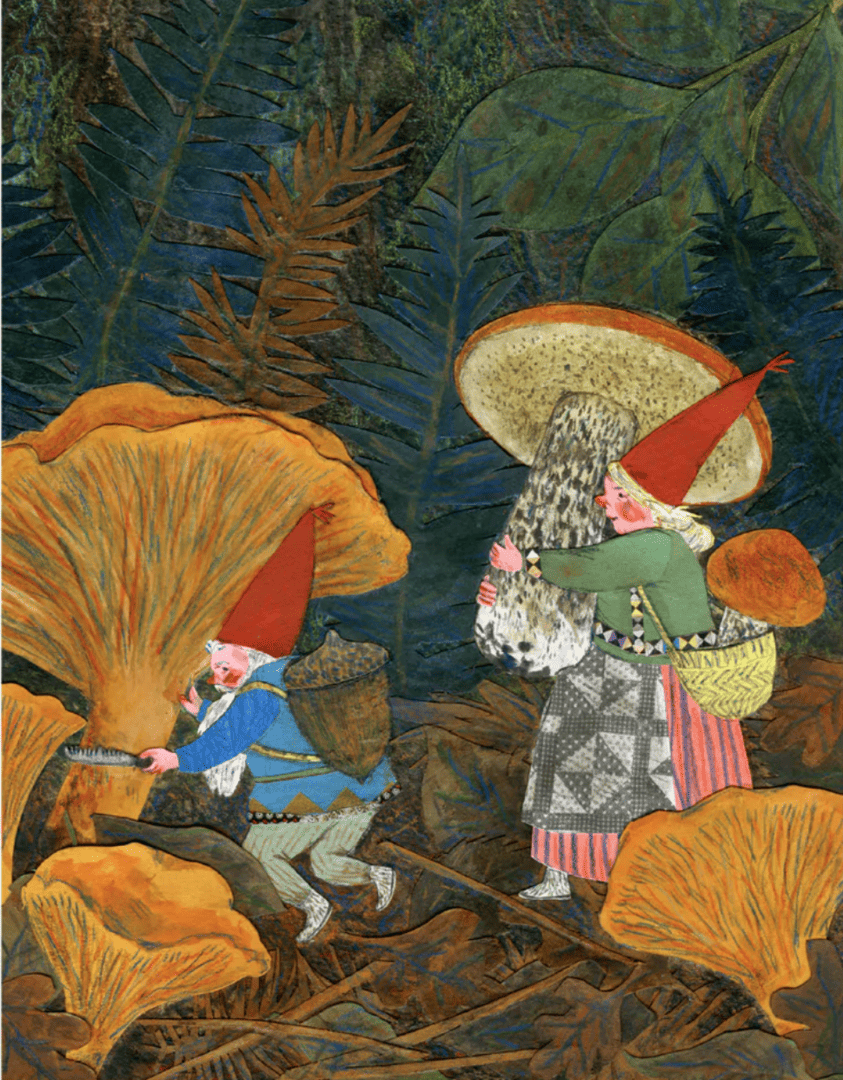
There you have it—an herbalism gift-giving guide that ranges from a roll of labels to an at-home distiller and everything in between. I hope this list inspired your holiday gift-giving and lights up the day of the lucky herbalist in your life.
We’re not affiliated or associated with any of the links we’ve provided. We’re just sharing some of our most loved and used items! Did we forget something? Let us know if there is something you think we should add to the list.
Have a happy and healthy holiday,
Sajah


